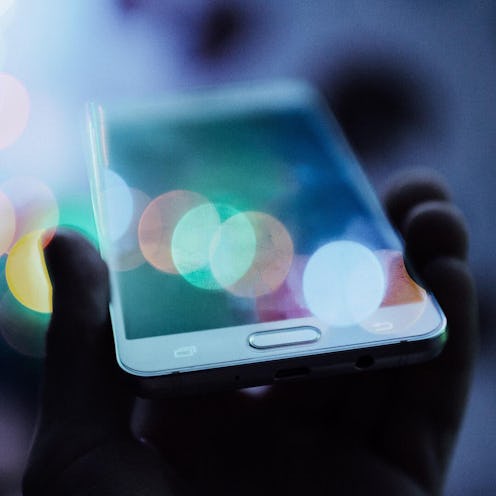We don’t know what this says about our lives, but it seems that Instagram is always serving us therapy-related ads. Is anyone else having this experience? No? Well, in any case, the ads have led us down a rabbit hole of discovery regarding the latest trend in apps, which are meant to replace costly in-person therapy. Here, we break down the latest and most interesting developments in the online mental health space, so you can determine whether or not breaking up with your IRL therapist is the way to go. (For scientific studies on the effectiveness of these treatments, click here.)
Your Friends Will Thank You For This
When you sign up for Talkspace, you'll get access to text-based therapy at a starting rate of $32 per week. The process begins with a matchmaker of sorts, who will assess your needs and partner you with a licensed therapist accordingly. We love the idea of being able to bug a professional about our daily anxieties rather than troubling our friends with them, but we wouldn't necessarily suggest text-based therapy as a replacement for in-person therapy if you're facing more significant or life-impeding mental health issues. Counselors in Talkspace must have a Master of Science in counseling psychology, clinical psychology, clinical counseling or educational psychology and be a licensed professional counselor (LPC), licensed mental health counselor (LMHC), licensed marriage and family therapist (LMFT), licensed and independent clinical social worker (LICSW), doctor of psychology (PsyD) or psychologist (PhD).
BetterHelp is similar to Talkspace in that it partners you with a therapist with whom you can chat online or via the app. Options for communication involve a non-timely chatroom, a live chat, a phone call or a video conference, and costs range from $35 to $70 per week. Therapists on the platform are psychologists (PhD or PsyD), marriage and family therapists, licensed clinical social workers or licensed professional counselors.
If you're less interested in simply complaining about your issues than you are in solving them, Lantern might be worth a shot, as it employs the techniques of cognitive behavioral therapy (CBT) to help you better your life. According to the Lantern website, "CBT is problem-focused and action-oriented, with the goal of addressing specific challenges through hands-on exercises, practical strategies and real-time tracking on how you're doing." Impressively, research done by Stanford and Washington University in St. Louis found that the app's body image program was useful in reducing eating disorders by 50%. Counselors hold advanced degrees (e.g., MSW, MPH, MA/MS) in mental health–related fields.
If you feel like your friends and family don't listen to you—or are tapped out on listening to you with respect to a specific issue (e.g., a breakup)—this might be the platform for you. 7 Cups of Tea employs "active listeners," which is a job that sounds equal parts easy and miserable. If you just need a (non-degree-holding) ear like this one, it'll cost you nothing. However, 7 Cups also offers unlimited messaging with trained, degree-holding therapists for a fee of $150 per month.
If you don't suffer from anxiety in 2017, congratulations—you are probably married to Justin Trudeau. In all seriousness, you might want to check out the Mayo Clinic's Anxiety Coach app, which is available for download for $4.99. It helps you master various fears via tailor-made activities and tracks your progress in the process. The only downside to this app is that it requires you to actually do things rather than just talk about them, but if you're into making real headway in terms of reducing your anxiety, this may be the way to go.
